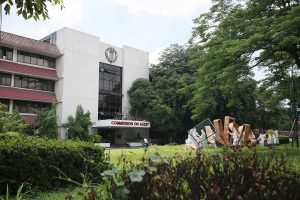Delay in release of CoA reports hampers public scrutiny — analysts
THE DELAY in the public release of the Commission on Audit’s (CoA) annual reports to December could affect the public’s ability to scrutinize spending issues within government agencies, political analysts said over the weekend as deliberations for next year’s proposed national budget advances in Congress.

By Kenneth Christiane L. Basilio, Reporter
THE DELAY in the public release of the Commission on Audit’s (CoA) annual reports to December could affect the public’s ability to scrutinize spending issues within government agencies, political analysts said over the weekend as deliberations for next year’s proposed national budget advances in Congress.
State auditors have moved the release of its audit reports to December in compliance with a General Appropriations Act provision, CoA Assistant Commissioner Alexander B. Juliano told congressmen in August. Audit reports were previously released in June.
Section 99 provided that concerned agencies are given 60 days upon the receipt of the audit reports to submit to CoA a status report on the actions taken regarding observations and recommendations of the Commission. It also noted that CoA’s web administrator should ensure that the audit reports are published on the website with the corresponding status report.
This led to the delay, which analysts said, could affect how the public perceives government spending and the Marcos administration’s transparency efforts.
“The General Appropriations Bill (GAB) that becomes the national budget tends to be fast-tracked by Congress. Moving the release of CoA audit reports means… we can no longer pursue them because their budgets were already approved,” Hansley A. Juliano, who teaches politics at the Ateneo de Manila University, said in a Facebook Messenger chat.
The Philippine Congress is expected to ratify the proposed P6.352-trillion national spending plan for 2025 before lawmakers go on break in mid-December, House of Representatives Majority Leader and Zamboanga City Rep. Manuel Jose M. Dalipe said in a statement earlier this month.
The House has already approved its version of the GAB in September, while senators are still discussing their budget bill in plenary.
The Commission is an independent constitutional body responsible for auditing all expenses and revenues of departments and agencies by conducting comprehensive reports of their operations, ensuring accountability and transparency in the use of public funds.
CoA’s Mr. Juliano explained that audited departments and oversight agencies are given access to the annual audit reports in June, while the publicly available report was not published until December “So, the publication on the website was delayed because we need to validate the actions taken by the agency on the audit observations,” he said in Filipino.
“This limits timely public access to critical information about how government funds are utilized. Without them, it becomes more challenging for advocates and the general public to hold public officials accountable,” Aljon Patrick C. Acupan, convener of transparency group FOI Youth Initiative, said in a Facebook chat.
He added that the delay “undermines” the Marcos administration’s commitment to a transparent government.
The delay in the release of audit reports also reflects poorly on the state auditing agency, Ateneo’s Mr. Juliano said.
“The impact on credibility isn’t just on the lawmakers and our line offices, it’s also on CoA. It either gives the impression that CoA is not staffed enough to timely pursue and review all budget spending, or that CoA is compromised.”
“Transparency in relation to public trust is not only a matter of publicizing reports. It is also a matter of making ordinary citizens value transparency and enabling them to utilize such reports in their political decision-making,” Anthony Lawrence A. Borja, a political science professor at De La Salle University, said in a Facebook chat.













